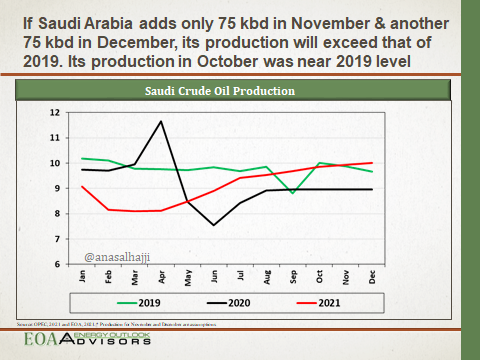
Thread
1- While #Iran as a country will benefit from lifting the sanctions, influential elements within the regime, along with certain influential groups in neighboring countries, will lose. Hence the opposition & the slow response. It is corruption & money, not politics. #OOTT
1- While #Iran as a country will benefit from lifting the sanctions, influential elements within the regime, along with certain influential groups in neighboring countries, will lose. Hence the opposition & the slow response. It is corruption & money, not politics. #OOTT
2- The US and its allies will commit a big mistake if they go to the negotiations at the end of this month with the logical arguments on how Iran as a country will benefit. I was surprised to learn yesterday that some democrats think Iran doesn't export oil because of sanctions!
3- US allies in the Gulf have no interest in such negotiations because they do not see any benefits.
It will be a big mistake on the part of the Biden Administration if it ignores this point: How to align the interests of Gulf states with the interest of the US.
It will be a big mistake on the part of the Biden Administration if it ignores this point: How to align the interests of Gulf states with the interest of the US.
4- It will be a big mistake on the part of the Biden Administration if it wins a deal with Iran while losing Gulf allies. It will be a mistake to get a deal without solving any problems in Yemen, Lebanon, Syria, and Iraq. Obsession with getting a deal done will backfire.
5- Getting a deal done will have an impact on sentiment in the oil market. Iran has prepared for months to increase oil production. But major production/export increases will take a few months.
Another sudden market crash as a result? Do not eliminate this possibility. #OOTT
Another sudden market crash as a result? Do not eliminate this possibility. #OOTT
6- The return of Iran to the oil market does not change the medium & long-term oil market outlook: a tight market with a high possibility of shortages.
Also, the Iranian nuclear issues are a never-ending crisis. What we went through in recent years will be repeated over & over
Also, the Iranian nuclear issues are a never-ending crisis. What we went through in recent years will be repeated over & over
• • •
Missing some Tweet in this thread? You can try to
force a refresh








